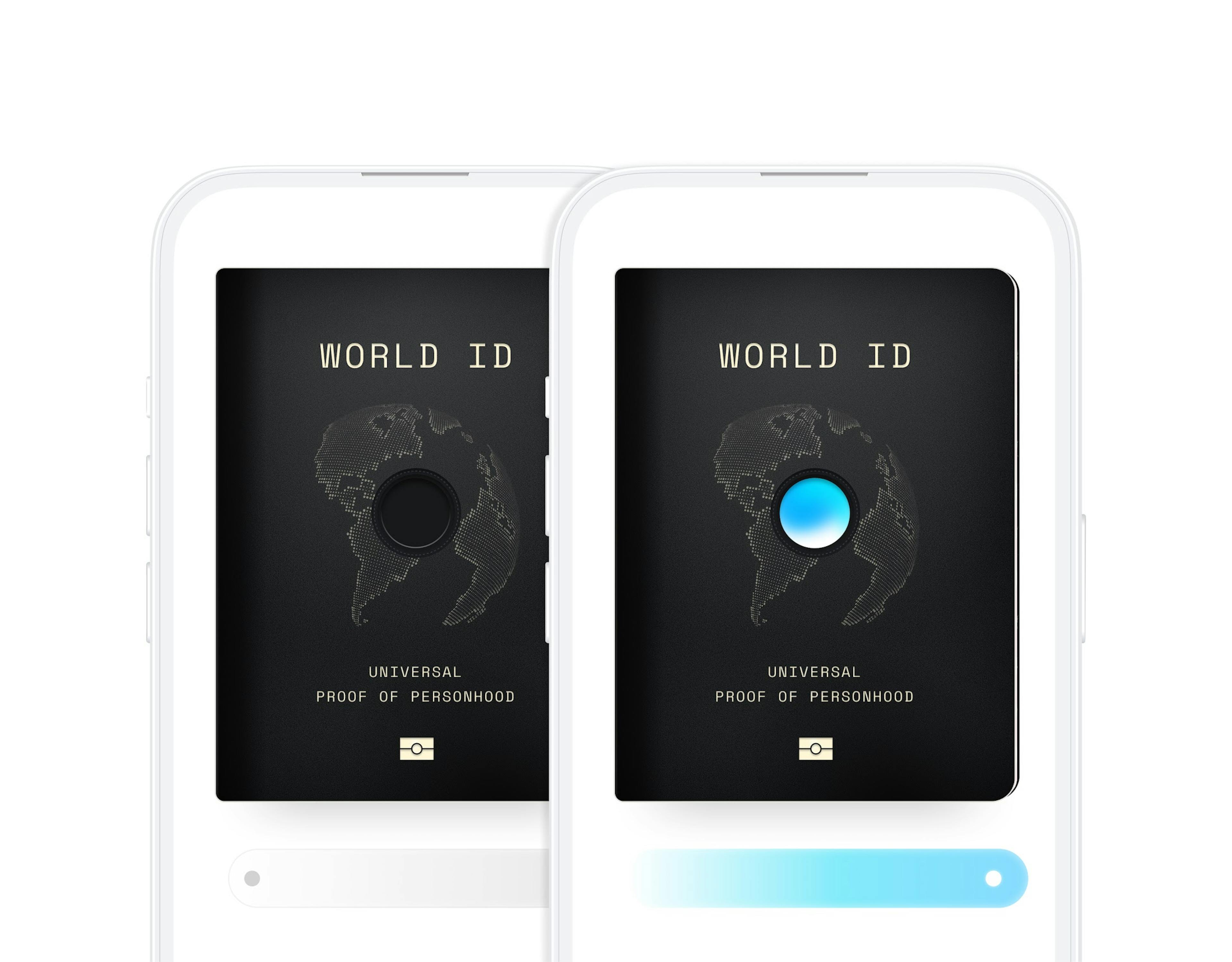- Blog
- Announcements
- Worldcoin’s new World ID unverify option increases personal control over data
Worldcoin’s new World ID unverify option increases personal control over data

The Worldcoin community is creating the tools humanity needs to prepare for the age of AI.
At the center of the project is World ID, a private and secure digital passport that verifies an individual’s humanness to help distinguish people from bots online. World ID does this without asking for, ascertaining or otherwise knowing the holder’s identity, and therefore cannot reveal this identity to anyone—not even to the teams supporting the development of the Worldcoin project.
Today, two important updates are being introduced to help build trust, increase transparency and offer individuals an increased level of personal control:
- The ability to unverify World IDs via permanent iris code deletion to give holders more personal control over their data.
- In-person age verification checks to help ensure Worldcoin is available only to humans 18 years and older.
These advancements are based on preliminary assessments by data protection authorities including the Bavarian State Office for Data Protection Supervision (BayLDA), which is the Worldcoin project’s lead supervisory authority in the EU, and they were developed in consultation with third-party privacy and security experts.
Increasing personal control: New unverify World ID option
World ID is private by design. It leverages cutting-edge technology like zero knowledge proofs (ZKPs) to protect the holder’s public key from being known or tracked across applications and to protect World ID use from being tied to any biometric data. It can also be verified and used without any information like name, email address, phone number, etc.
This privacy protection is one of the reasons why millions of people globally trust an orb-verified World ID to prove their humanness online.
Now, World ID holders have even more control with the option to unverify their World ID. This includes the permanent deletion of their iris code, a numeric representation of an individual’s unique iris texture that exists to ensure that individuals can only verify one World ID.
Once deletion is requested, the individual‘s World ID will become invalid and a 6-month “cool off” period will be initiated to help protect against fraud by ensuring individuals cannot immediately re-verify their humanness. At the end of this cool off period, their iris code will be permanently deleted and unrecoverable.
Together with Personal Custody, these options provide World ID holders unmatched control over their information, which can be exercised directly from their device without visiting an orb.
Personal Custody: your information, always deleted from the orb, securely held on your device. pic.twitter.com/uxe9fFci1n
— Worldcoin (@worldcoin) March 26, 2024
“Worldcoin has recognized that, in the age of AI, proof of humanness will be the basis for the future usability of the internet and for numerous economic aspects of the digital world,” said Dr. Stefan Brink, Founder and Managing Director of the independent institute wida in Berlin and former German State Commissioner for Data Protection and Freedom of Information in Baden-Württemberg from January 2017 to December 2022.
“Until now, anyone wishing to prove their humanness online has used means such as government IDs, which are burdened by the disadvantage of identifying the user and of revealing a large quantity of other personal data, even though this is not necessary. In contrast, World ID allows an anonymous ‘proof of unique humanness’ and thus counters the model of ‘surveillance capitalism’ with a model that promotes data protection. World ID hereby strengthens the opportunities for data protection-compliant online activities.”
Further preventing underage sign ups
Worldcoin project contributors have worked via both in-app and in-person attestations to ensure that only individuals 18+ have access to the Worldcoin network. To further these efforts, the project is rolling out an on-site age verification check at all orb locations prior to World ID verification.
This check will be performed by third party personnel before entering the venue. It will explicitly not include the storage, recording or transmission of any information. This way, Worldcoin and project contributors can ensure that they will not know who an individual is, maintaining the project’s steadfast commitment to preserving personal privacy.
Building blocks of trust and transparency
Worldcoin does not seek to know who you are, just that you are a unique human.
The project is deeply committed to data-minimizing systems that are transparent and trustworthy. That’s why the Worldcoin Foundation, along with project contributors, continue to open source key parts of the project, from its hardware and SDK to its AI pipeline and, most recently, the orb’s software.
It’s also why third party experts like Trail of Bits, Reilabs, Nethermind and Least Authority are leveraged to audit and formally verify the security of the protocol, the orb and other important Worldcoin systems.
Worldcoin, through the Foundation and project contributors, will continue working with the community, experts and regulators to push the state of the art for individual privacy and control in all dimensions. Understanding the regions in which Worldcoin operates is crucial to the success of the project, and contributors are constantly evaluating the best methods to preserve user privacy while ensuring compliance with local privacy regulations and cultural appropriateness. Visit the following links to learn more about Worldcoin data security protections and regulatory compliance.
You can also learn more about the Worldcoin protocol by visiting the Worldcoin website or the protocol whitepaper, by joining the daily conversations on Twitter/X, Telegram, Discord, YouTube and LinkedIn, or by signing up for the blog newsletter at the bottom of this page.
The above content speaks only as of the date indicated. Further, it is subject to risks, uncertainties and assumptions, and so may be incorrect and may change without notice. A full disclaimer can be found in our Terms of Use and Important User Information can be found on our Risks page.